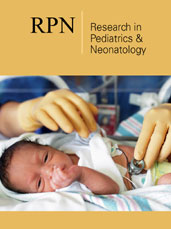- Submissions

Abstract
Research in Pediatrics & Neonatology
Impact of Life Skill Training Program on Mental Health and Wellbeing of Adolescents
-
Open or CloseJessy Mavarayil John1,2*
1Head of the Department of Psychiatric Social Work, Kusumagiri Mental Health Centre, Cochin, Kerala, India
2Student Counsellor / Mental Health Professional, Department of Guidance and Counselling Services, Bharata Mata School of Legal Studies, Cochin, Kerala, India
*Corresponding author: Jessy Mavarayil John, Head of the Departmentof Psychiatric Social Work, Kusumagiri Mental Health Centre, Student Counsellor/ Mental Health Professional, Department of Guidance and Counselling Services,Bharata Mata School of Legal Studies, Cochin, Kerala, India
Submission: July 07, 2022; Published: October 14, 2022

ISSN : 2576-9200Volume7 Issue1
Abstract
The aim of the study is to assess the impact of life skills training on mental health and wellbeing of adolescents. A classical experimental research design with control group and random sampling method were used. The study population comprises 720 adolescents (both girls and boys in the age group of 16 to 19yrs) from six higher secondary schools in Ernakulam Educational district of Kerala, India. The respondents were selected on the basis of inclusion and exclusion criteria. Informed written consent was obtained from the participants prior to the study. The respondents were sequentially assigned into intervention group and control group with 360 each for determining the effect of the intervention comparatively. The standard tools administered to evaluate the mental health status and wellbeing in three timelines are: GHQ-28 [1] and WEMWS-14 [2] respectively.
Researcher conducted life skills training to the intervention group after pre-intervention. The same assessment tools were administered for post-intervention (one-three months) and follow-up intervention (six-nine months) to evaluate the impact of intervention on mental health and wellbeing. The current version of Statistical Package for Social Sciences (SPSS) was used to analyze the data and correlations were obtained. Repeated Measures Analysis of Variance (RMANOVA) was performed to test whether there is any significant effect due to intervention in the scores. Independent sample t-test was used to compare the equality of baseline scores of various components. Data were analyzed by descriptive and inferential statistics in three timelines under different sections. The result shows that there was highly significant intervention effect between the scores of mental health and wellbeing. The p value is less than 0.05 (normal value) the null hypothesis rejected, and alternate hypothesis accepted i.e., intervention is effective.
Keywords: Mental health and wellbeing; Life skill training; Adolescents
 a Creative Commons Attribution 4.0 International License. Based on a work at www.crimsonpublishers.com.
Best viewed in
a Creative Commons Attribution 4.0 International License. Based on a work at www.crimsonpublishers.com.
Best viewed in 







.jpg)






























 Editorial Board Registrations
Editorial Board Registrations Submit your Article
Submit your Article Refer a Friend
Refer a Friend Advertise With Us
Advertise With Us
.jpg)






.jpg)














.bmp)
.jpg)
.png)
.jpg)










.jpg)






.png)

.png)



.png)






